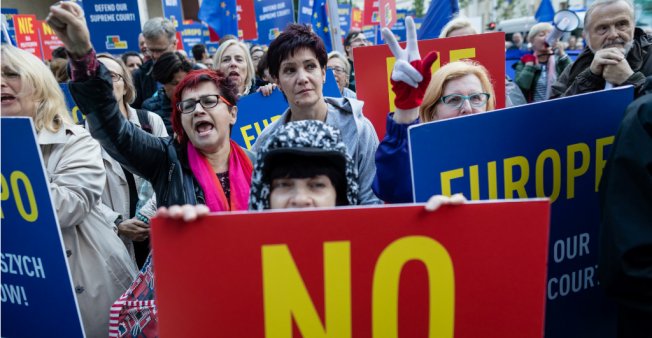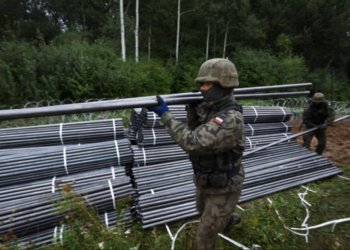Polish officials on Wednesday moved to speed up the appointment of new judges to the Supreme Court despite objections at home and from the European Union.
The governing conservative Law and Justice (PiS) party had introduced the forced early retirement of judges over the age of 65 as part of a raft of controversial judicial reforms that have drawn concern from Brussels.
“We’re speeding things up as much as we can,” judge Leszek Mazur told reporters on Wednesday.
Mazur is the new head of the National Council of the Judiciary (KRS), a body overseeing judicial impartiality whose composition was changed as part of the reforms.
The PiS insists the judicial changes tackle corruption and overhaul a judicial system still haunted by Poland’s communist era. But the opposition, democracy watchdogs and the European Union have warned they undermine judicial independence, the rule of law and democracy.
This is outrageous & a further slap in the face to the independence of the judiciary in #Poland, to international law and the @EU_Commission action under Article 7 and most of all to the #ruleoflaw in Poland. Reinstate the judges! @ICJ_org https://t.co/CnzS8Hlj2D
— Massimo Frigo (@maxfrigo) August 22, 2018
Earlier this month, Poland’s Supreme Court said it was suspending the forced early retirement until the European Court of Justice could weigh in on the matter.
The E.U. then stepped up its legal threats to Poland over the reforms, giving Warsaw one month to comply or risk being hauled before the bloc’s top court.
But the KRS is plowing ahead with its task of vetting new candidates to replace the retiring judges. Once the body names their successors, it will be up to President Andrzej Duda to approve them.
The retirement law came into effect last month and lowers the pension age of judges from 70 to 65.
It affects 27 of the Supreme Court’s sitting 73 judges including chief justice Malgorzata Gersdorf, who has refused to step down, slamming the measure as a “purge” that breaches her constitutionally guaranteed six-year term ending in 2020.
In December, Brussels triggered unprecedented Article 7 proceedings against Poland over “systemic threats” to the rule of law, which could eventually see Warsaw’s E.U. voting rights suspended.
























